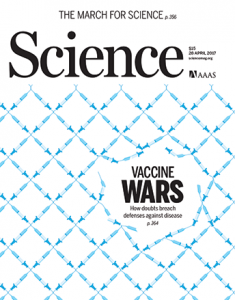A chemistry researcher in India has had seven of his papers retracted after the publisher concluded that some images in the papers showed “unexpected similarities” or had been duplicated.
The retraction notices, issued in late March by the Royal Society of Chemistry (RSC) in the U.K., all state that:
The authors informed the Editor that the characterization of the original samples was outsourced, and they do not have the original raw data for the published results.
Given the significance of the concerns about the validity of the data, and the lack of raw data, the findings presented in this paper are not reliable.
The corresponding author, Dhanaraj Gopi of Periyar University in Tamil Nadu, had several papers flagged on PubPeer starting in 2019, including some that have not been retracted.
Continue reading Chemist in India loses seven papers, blames outsourcing of images








